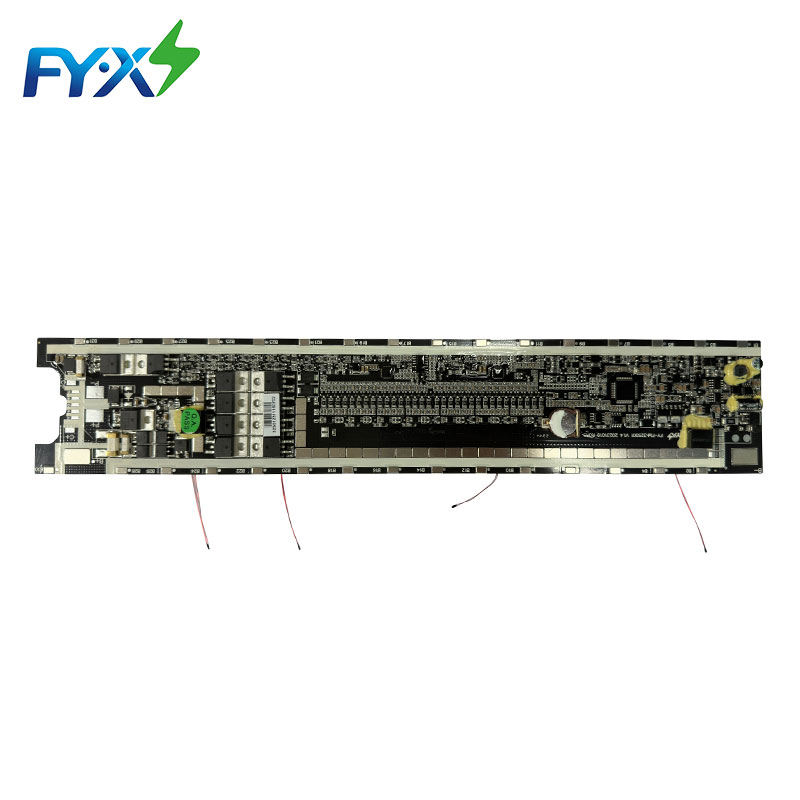Functions of BMS for E-Unicycles
2024-06-11
A Battery Management System (BMS) for e-unicycles is a critical component that manages the charging, discharging, and overall health of the lithium-ion batteries used in electric unicycles (e-unicycles). BMS ensures the safety, efficiency, and longevity of the battery pack by monitoring and controlling various parameters such as voltage, current, temperature, and state of charge. Here's an overview of the functions, features, and importance of BMS for e-unicycles:
Functions of BMS for E-Unicycles:
1. Cell Balancing:
- BMS ensures that individual lithium-ion cells within the battery pack are balanced, meaning they have equal voltage levels. This prevents overcharging of some cells while others remain undercharged, which can lead to reduced battery capacity and lifespan.
2. Overcharge Protection:
- BMS prevents overcharging of the battery pack by monitoring voltage levels during charging and terminating the charging process when the cells reach their maximum voltage threshold. This helps prevent damage to the cells and reduces the risk of fire or explosion.
3. Overdischarge Protection:
- BMS protects the battery pack from overdischarging by monitoring voltage levels during discharge and cutting off power to the motor when the cells reach their minimum voltage threshold. This prevents damage to the cells and ensures they remain within safe operating limits.
4. Temperature Monitoring:
- BMS monitors the temperature of the battery pack during charging and discharging operations. If the temperature exceeds safe limits, BMS may reduce charging current, limit discharge current, or shut down the system to prevent overheating and thermal runaway.
5. Short Circuit Protection:
- BMS includes circuitry to detect and protect against short circuits in the battery pack or external wiring. It may disconnect the battery pack from the rest of the system in the event of a short circuit to prevent damage to the cells and other components.
6. State of Charge (SOC) Estimation:
- BMS estimates the state of charge of the battery pack based on voltage, current, and temperature measurements. This information is used to provide accurate battery level indicators to the user and ensure proper operation of the e-unicycle.
7. Communication Interface:
- Some advanced BMS units may include communication interfaces such as CAN (Controller Area Network) or UART (Universal Asynchronous Receiver-Transmitter) for communication with the e-unicycle's controller or mobile app. This allows for real-time monitoring of battery status and diagnostics.
Importance of BMS for E-Unicycles:
1. Safety:
- BMS plays a crucial role in ensuring the safety of e-unicycle riders by preventing overcharging, overdischarging, overheating, and short circuits, which can lead to fire hazards or battery failures.
2. Battery Health:
- BMS helps maintain the health and longevity of the lithium-ion battery pack by preventing conditions such as overcharging, overdischarging, and cell imbalances, which can degrade battery performance and capacity over time.
3. Performance Optimization:
- By monitoring and controlling battery parameters, BMS helps optimize the performance and efficiency of the e-unicycle, ensuring consistent power delivery and maximizing the range per charge.
4. User Experience:
- A well-designed BMS enhances the user experience by providing accurate battery level indicators, reliable performance, and peace of mind regarding battery safety and reliability.
5. Compliance:
- BMS ensures compliance with safety standards and regulations for electric vehicles, including requirements for battery protection, thermal management, and communication interfaces.
Considerations for BMS Selection:
1. Compatibility:
- Ensure that the BMS is compatible with the voltage and capacity of the lithium-ion battery pack used in the e-unicycle, as well as the specifications of the motor controller and charging system.
2. Quality and Reliability:
- Choose a BMS from a reputable manufacturer known for producing high-quality and reliable battery management solutions. Look for certifications such as UL (Underwriters Laboratories) or CE (Conformité Européenne) for added assurance.
3. Functionality:
- Evaluate the features and capabilities of the BMS, such as overcharge protection, overdischarge protection, cell balancing, temperature monitoring, communication interfaces, and diagnostic capabilities, to ensure they meet the requirements of the e-unicycle application.
4. Integration:
- Consider the ease of integration of the BMS with the e-unicycle's electrical system, including wiring connections, mounting options, and compatibility with the existing battery pack and motor controller.
5. Scalability:
- If planning to upgrade or expand the battery pack in the future, choose a BMS that supports scalability and can accommodate additional cells or modules without requiring significant modifications.
6. Support and Service:
- Select a BMS vendor that offers good technical support, documentation, and after-sales service to assist with installation, troubleshooting, and maintenance of the BMS unit.
Conclusion:
A Battery Management System (BMS) is a critical component of electric unicycles (e-unicycles) that ensures the safety, efficiency, and longevity of the lithium-ion battery pack. By monitoring and controlling various parameters such as voltage, current, temperature, and state of charge, BMS protects the battery pack from overcharging, overdischarging, overheating, and other conditions that can lead to damage or failure. When selecting a BMS for e-unicycles, consider factors such as compatibility, quality, functionality, integration, scalability, and support to ensure optimal performance and reliability of the battery system.



